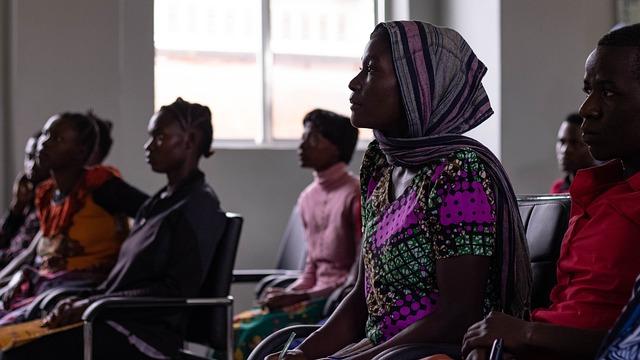Bridging Divides: Navigating Social Challenges in Pakistan
In a nation as vibrant and diverse as Pakistan, the tapestry of its society is woven with threads of myriad cultures, languages, and beliefs. However, this rich fabric often conceals deep-seated divides—economic disparities, cultural misunderstandings, and political polarization—that challenge the very fabric of social cohesion. As the country stands at a crossroads, grappling with these complexities, the need for dialogue and understanding has never been more pressing. This article seeks to explore the intricate landscape of social challenges in Pakistan, highlighting the paths toward reconciliation and unity. By examining the historical context, contemporary issues, and potential solutions, we aim to foster a deeper understanding of how individuals and communities can come together to bridge divides, nurturing a future marked not by discord, but by collaboration and mutual respect. Join us as we embark on this journey through the heart of Pakistan’s social landscape, illuminating the opportunities that arise amidst adversity.
Exploring the Roots of Social Division in Pakistan
Pakistan’s social fabric is intricately woven through its diverse ethnicities, religions, and cultural backgrounds. However, this richness is often overshadowed by underlying divisions that manifest in various forms. Socioeconomic disparities, political instability, and historical grievances contribute significantly to these divisions. Ethnic groups such as the Punjabis, Sindhis, Pashtuns, and Baloch, each with their distinct identities, often find themselves at odds, driven apart by competition for resources and target representation in governance.
Furthermore, issues like education inequality, regional favoritism, and the politicization of religion exacerbate these tensions. As society grapples with these challenges, it becomes essential to understand how these divisions form and persist. Key factors include:
- Economic Inequality: Disparities in wealth distribution create rifts among communities.
- Cultural Misunderstanding: Lack of awareness and appreciation for different cultures leads to mistrust.
- Political Manipulation: Leaders often exploit divisions to consolidate power.
| Division Type | Impact |
|---|---|
| Ethnic | Marginalization and identity crises |
| Economic | Increased poverty and unrest |
| Religious | Conflict and radicalization |

Empowering Youth: The Key to Fostering Inclusivity
Empowering the youth in Pakistan holds the potential to drive social change and cultivate an environment of inclusivity. By investing in educational initiatives, mentorship programs, and community engagement, young individuals can become catalysts for transformation in their communities. When youth from diverse backgrounds are equipped with the necessary tools and knowledge, they not only develop a sense of self-worth but also become advocates for those around them. Initiatives should include:
- Entrepreneurship training: Providing resources and skills to encourage innovation.
- Vocational education: Fostering job readiness through specialized training.
- Community service projects: Engaging youth directly in their communities to promote collaboration.
Moreover, fostering inclusivity requires creating safe spaces for dialogue, where young people can express their thoughts and concerns freely. By promoting engagement among diverse groups, these platforms can cultivate understanding and empathy, breaking down barriers that hinder social cohesion. Collaborative efforts, such as youth-led conferences and intercommunity workshops, can facilitate meaningful conversations that contribute to collective problem-solving. The outcomes can be transformative:
| Outcome | Impact |
|---|---|
| Stronger networks | Enhanced collaboration among youth groups. |
| Increased awareness | Broadened understanding of social issues. |
| Leadership skills | Empowered youth to take active roles in their communities. |

Role of Community Engagement in Building Bridges
Community engagement acts as a vital catalyst in addressing social challenges and fostering unity within Pakistan. By promoting dialogue among different groups, it facilitates understanding and cooperation, creating a sense of belonging and shared purpose. Through initiatives like town hall meetings, workshops, and cultural festivals, citizens are encouraged to come together and share their perspectives, which helps in breaking down stereotypes and building trust. Such interactions often lead to collaborative projects aimed at enhancing local infrastructure, education, and healthcare, thereby nurturing a healthier, more informed community.
Moreover, the involvement of local organizations and grassroots movements plays a critical role in mobilizing resources and amplifying voices that are often silenced. These entities act as intermediaries, translating community needs into actionable plans that resonate with stakeholders at all levels. By tapping into the strengths and talents of local residents, they not only address immediate concerns but also cultivate leadership skills that empower individuals to take ownership of their communities. The synergy created through these efforts can be illustrated in the following table:
| Community Engagement Activity | Impact |
|---|---|
| Workshops | Skills development and empowerment |
| Cleaning Drives | Environmental awareness and collaboration |
| Cultural Festivals | Celebrating diversity and fostering unity |
| Town Hall Meetings | Open dialogue and transparency in governance |

Harnessing Technology for Social Cohesion and Awareness
In an increasingly interconnected world, technology serves as a powerful tool to foster social cohesion and raise awareness about pressing issues. Social media platforms, mobile applications, and digital campaigns can unite individuals across diverse backgrounds, promoting dialogue and understanding. By leveraging these tools, communities can enhance their collective problem-solving skills, share resources, and mobilize support for various causes. Creating interactive spaces online encourages participation and collaboration, allowing voices to be heard irrespective of geographical boundaries. Key strategies may include:
- Community Engagement Platforms: Utilizing apps that connect neighbors for local initiatives.
- Awareness Campaigns: Launching viral initiatives that address social issues, such as education and health.
- Virtual Events: Hosting webinars and workshops to discuss community challenges and solutions.
The impact of technology on promoting social unity can be further illustrated through collaborative projects that harness the power of data to address specific societal needs. For instance, utilizing crowdsourced information to map areas lacking essential services creates a visual representation of disparity, enabling targeted interventions. Below is a simplified representation of potential community projects that can be facilitated through technological advancements:
| Project Name | Objective | Target Audience |
|---|---|---|
| Health Awareness Campaign | Increase awareness about maternal health | Women of reproductive age |
| Education Outreach | Provide digital learning tools for underprivileged schools | Students in rural areas |
| Community Safety App | Enhance neighborhood security through real-time alerts | Local residents |
Closing Remarks
As we draw the curtains on our exploration of the intricate tapestry that is Pakistan, it becomes evident that navigating social challenges requires not only awareness but also empathy and collective action. The divides that fragment communities are not insurmountable; rather, they present opportunities for dialogue and understanding.
In a nation rich in diversity, every voice contributes to the chorus of progress. Bridging these divides demands patience and resilience, but the rewards—a more cohesive and harmonious society—are worth the effort. As individuals, communities, and institutions come together, they can forge connections that transcend differences, paving the way for innovative solutions to entrenched social issues.
As we move forward, let us carry with us the lessons learned from this rich discourse. Each step taken toward reconciliation is a step toward a future where diversity is celebrated, and unity is cherished. The journey is ongoing, and every effort counts. Together, we can nurture a Pakistan where every citizen feels valued and empowered to play their part in the vibrant mosaic of humanity. Let us be the architects of change, building bridges that withstand the tests of time and conflict, leading us toward a brighter, more inclusive tomorrow.



